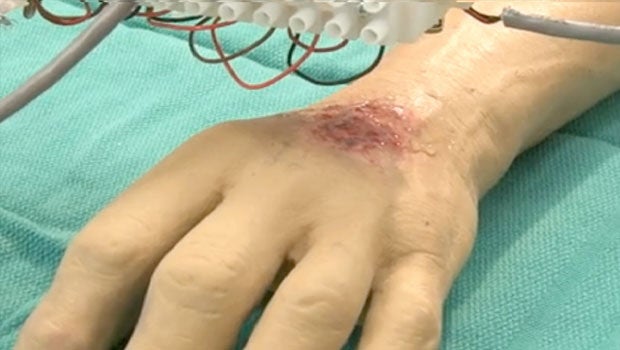L’Oreal to start 3D printing human skin for clinical testing

Humanoid androids suddenly seem a whole lot less far off, with L’Oreal confirming plans to start 3D printing human skin and tissue.
The cosmetics company, which already farms its own human skin cells, has partnered with bioprinting start-up Organovo to 3D print tissues for clinical testing.
A far step from the plastic toy and trinket production currently associated with 3D printing, once realised, the move will allow the makeup giant to further reduce its animal testing procedures.
At present, L’Oreal employs around 60 scientists to grow more than 100,000 skin samples per year, according to Bloomberg. This equates to about five square meters of the human covering – the equivalent of a single cowhide.
“
He added: “Because the skin has different layers and you have to grow them in succession.
“We’re the first beauty company Organovo has worked with.”
Current procedures are currently unclear, but L’Oreal has suggested it hopes to automate the skin production process over the next five years.
California-based Organovo currently specialises in 3D printing tissues for human liver and kidney transplants.
Related: 10 awesome things people are doing with 3D printing
The partnership will see L’Oreal own exclusive rights to the 3D printed skin developed with Organovo for use in non-prescription skin care products.
The tech could eventually be licensed out to help patients with dermatological conditions or in need of skin grafts.

